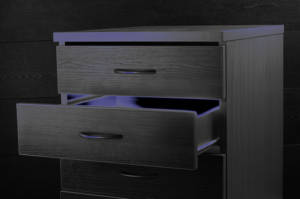I earlier posted the audio of a client who recently described incredible successes in activating her brain’s internal gyrostabilizing, or self-comforting ability, that you can listen to here.
ANOTHER EXAMPLE OF success with using the inner gyroscope
Yet another client of mine was encouraged and inspired by her success story and decided she would follow her lead and use similar strategies to challenge some of her fears. In her situation, she has the fear of contamination by people she perceives to be dirty due to poor ethics and values which causes compulsive self-cleaning when returns home after being out in public, and also causes her to avoid people, places and things she associates with these bad people.
She has been making significant progress with reducing her cleaning rituals but in a recent session she revealed that she has a desk drawer at work she’s not opened in over a year explaining that she feels there’s “something bad in it” meaning some object with some association to a “bad” person. She can’t recall what is in the drawer and who or what the item is negatively associated with, but stated definitively “I can’t open it because I’m afraid something bad will happen.”
How having a rational conversation helped her overcome her irrational fear of opening the drawer
 She went on about the strong fear of releasing something very bad, and felt very, very afraid of that and the idea of opening the drawer. After she described for a while her strong fear and how she felt that opening the drawer would be very bad, I told her “You really can’t and shouldn’t open that drawer”. She looked at me with a look of utter shock, and then said with a smile, “you don’t really mean that, you’re just saying that.”
She went on about the strong fear of releasing something very bad, and felt very, very afraid of that and the idea of opening the drawer. After she described for a while her strong fear and how she felt that opening the drawer would be very bad, I told her “You really can’t and shouldn’t open that drawer”. She looked at me with a look of utter shock, and then said with a smile, “you don’t really mean that, you’re just saying that.”
I told her that I truly believed she can’t and shouldn’t open the drawer. Again, with great incredulity she asked me why.
I explained that because she can’t remember what is in the drawer that it may indeed be something bad – maybe even Anthrax – and therefore shouldn’t open it. She laughed and said she knows there’s no anthrax in it but she fears that she’ll end up feeling very, very bad if she opens it.
I asked what could happen if she were to open it and feel very, very bad. She said she’d just feel bad but not think that something actually bad would happen to her – again, it would just be a very bad feeling she’d have to deal with. ‘
I again asked what such a bad feeling could do to her – could it cause her to lose control of herself, loose her mind, perhaps need mental hospitalization, or do something uncontrollable? She again laughed and said ,”no.”
So I asked her, “Then why not open it?” She again said she was afraid to because she fears she’d feel bad. I again asked what that could do and she said, “Nothing.” So I asked “Then why not open it?”
She was able to finally realize there wasn’t a rational reason to perpetuate her avoidance and that she should just open it.
I asked her what she was going to do about it this week and she firmly stated “open the drawer” – with clear resolution and confidence that she indeed would.
In sum
What this exchange clearly illustrated is the power of irrational feelings to drive irrational behavior. As long as the behavior continues, so will the feeling. The escape from this irrational cycle is to challenge the irrational fears in a cool head (Step 2) which I facilitated in the session, to then decide and preplan new rational behavior which will extinguish the irrational fear and activate the inner gyroscope to bring us back into cognitive consonance. We discussed how she was to use the paradoxical Step 1 Labels of “I don’t have OCD” and “I’m normal” as my other client did.
The following week she was able to report that she did successfully open the drawer and that, naturally, no catastrophe occurred and she didn’t even feel much anxiety. She reported that the work we did in the previous session made it much easier for her to challenge her fear and open the drawer. Her inner gyroscope did the rest by quickly putting her mind at ease and thereby allowing her to feel powerful and proud of her ability to master her anxiety.
